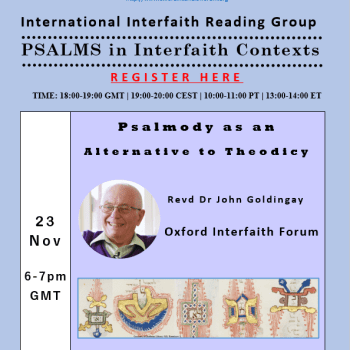 Students of the Bible learn about the Documentary Hypothesis, the view that the Pentateuch was put together using multiple earlier written sources, traditionally identified using the abbreviations JEPD. Sometimes challenges have been raised to such source criticism on the grounds that varying the way one refers to God is quite common within unified religious traditions and their musical expression of their faith.
Students of the Bible learn about the Documentary Hypothesis, the view that the Pentateuch was put together using multiple earlier written sources, traditionally identified using the abbreviations JEPD. Sometimes challenges have been raised to such source criticism on the grounds that varying the way one refers to God is quite common within unified religious traditions and their musical expression of their faith.
For me, the strongest support for the Documentary Hypothesis’ distinction between sources based on different ways of referring to God comes from the Psalms, specifically Psalm 14 and Psalm 53. If you read them both side by side, you’ll see that they are both essentially the same psalm, the only major difference being that one addresses God using the divine name YHWH, and the other does not.
I don’t see any way of accounting plausibly for these two psalms being part of this collection other than in terms of there being different groups, or regions, or kingdoms, which had different preferences regarding how to refer to and address God. And that makes it seem plausible to account for the different passages in the Pentateuch which refer to God in different ways in terms of those same distinct traditions or groups.













